Related Research Articles
Milton James Rhode Acorn, nicknamed The People's Poet by his peers, was a Canadian poet, writer, and playwright.
Canadian poetry is poetry of or typical of Canada. The term encompasses poetry written in Canada or by Canadian people in the official languages of English and French, and an increasingly prominent body of work in both other European and Indigenous languages.
George Harry Bowering, is a prolific Canadian novelist, poet, historian, and biographer. He was the first Canadian Parliamentary Poet Laureate.
Earle Alfred Birney was a Canadian poet and novelist, who twice won the Governor General's Award, Canada's top literary honour, for his poetry.
Francis Reginald Scott (1899–1985), commonly known as Frank Scott or F. R. Scott, was a lawyer, Canadian poet, intellectual, and constitutional scholar. He helped found the first Canadian social democratic party, the Co-operative Commonwealth Federation, and its successor, the New Democratic Party. He won Canada's top literary prize, the Governor General's Award, twice, once for poetry and once for non-fiction. He was married to artist Marian Dale Scott.
Phyllis Webb was a Canadian poet and broadcaster.
TISH was a Canadian poetry newsletter founded by student-poets at the University of British Columbia in 1961. The publication was edited by a number of Vancouver poets until 1969. The newsletter's poetics were built on those of writers associated with North Carolina's Black Mountain College experiment.
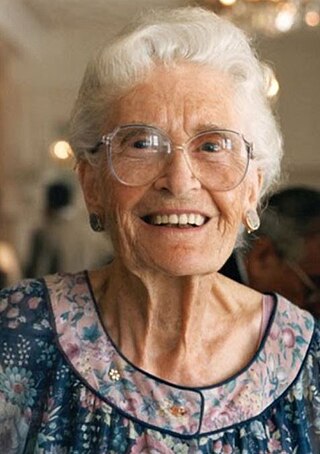
Dorothy Kathleen May Livesay, was a Canadian poet who twice won the Governor General's Award in the 1940s, and was "senior woman writer in Canada" during the 1970s and 1980s.
Arthur James Marshall Smith was a Canadian poet and anthologist. He "was a prominent member of a group of Montreal poets" – the Montreal Group, which included Leon Edel, Leo Kennedy, A. M. Klein, and F. R. Scott — "who distinguished themselves by their modernism in a culture still rigidly rooted in Victorianism."
Roy Kenzie Kiyooka was a Canadian painter, poet, photographer, arts teacher.
Bruce Meyer is a Canadian poet, broadcaster, and educator—among other roles in the Canadian literary scene. He has authored more than 64 books of poetry, short fiction, non-fiction, and literary journalism. He is a professor of Writing and Communications at Georgian College in Barrie and Visiting Associate at Victoria College at the University of Toronto, where he has taught Poetry, Non-Fiction, and Comparative Literature.

Duncan Campbell Scott was a Canadian civil servant and poet and prose writer. With Charles G.D. Roberts, Bliss Carman, and Archibald Lampman, he is classed as one of Canada's Confederation Poets.

Wilson Pugsley MacDonald was a popular Canadian poet who "was known mainly in his own time for his considerable platform abilities" as a reader of his poetry. By reading fees, and by selling his books at readings, he was able to make a living from his poetry alone. In the 1920s he was so popular that, according to writer John Robert Colombo, "his fame eclipsed that of Robert Service and Pauline Johnson."
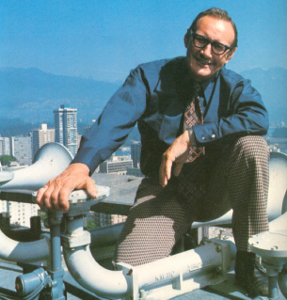
Robert Swanson (1905–1994) was a Canadian researcher and developer, and is credited with the invention of the first five and six-chime air horns for use on locomotives. Swanson had worked as the chief engineer of a company called Victoria Lumber Manufacturing in the 1920s, when he developed a hobby for making steam whistles for locomotives. Eventually, Swanson designed and built a large steam whistle for the mill where he worked. He also built the Heritage Horns that were on the old BC Hydro building that play the first four chords of "O Canada" at noon every day. The horns are now on the roof of the Pan Pacific hotel at Canada Place.
Confederation Poets is the name given to a group of Canadian poets born in the decade of Canada's Confederation who rose to prominence in Canada in the late 1880s and 1890s. The term was coined by Canadian professor and literary critic Malcolm Ross, who applied it to four poets – Charles G.D. Roberts (1860–1943), Bliss Carman (1861–1929), Archibald Lampman (1861–1899), and Duncan Campbell Scott (1862–1947) – in the Introduction to his 1960 anthology, Poets of the Confederation. He wrote, "It is fair enough, I think, to call Roberts, Carman, Lampman, and Scott our 'Confederation poets.'"
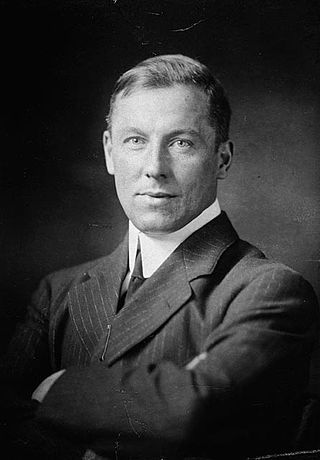
Robert William Service was a British-Canadian poet and writer, often called "the Bard of the Yukon". Born in Lancashire of Scottish descent, he was a bank clerk by trade, but spent long periods travelling in the west in the United States and Canada, often in poverty. When his bank sent him to the Yukon, he was inspired by tales of the Klondike Gold Rush, and wrote two poems, "The Shooting of Dan McGrew" and "The Cremation of Sam McGee", which showed remarkable authenticity from an author with no experience of the gold rush or mining, and enjoyed immediate popularity. Encouraged by this, he quickly wrote more poems on the same theme, which were published as Songs of a Sourdough, and achieved a massive sale. When his next collection, Ballads of a Cheechako, proved equally successful, Service could afford to travel widely and live a leisurely life, basing himself in Paris and the French Riviera.
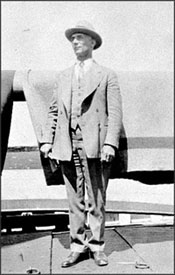
Christian Klengenberg Jorgensen, was a Danish whaler, trapper, and trader, active for 34 years in Alaska and Northern Canada. He is notable for opening trade routes to the Copper Inuit territory. Klengenberg is also credited with the discovery of Blond Eskimo and recounting his experience to the anthropologist Vilhjalmur Stefansson who went on to publish about their existence.

Marjorie Lowry Christie Pickthall, was a Canadian writer who was born in England but lived in Canada from the time she was seven. She was once "thought to be the best Canadian poet of her generation."
William Wrighton Eustace Ross [often misspelt William Wrightson Eustace Ross] was a Canadian geophysicist and poet. He was the first published poet in Canada to write Imagist poetry, and later the first to write surrealist verse, both of which have led some to call him "the first modern Canadian poet."
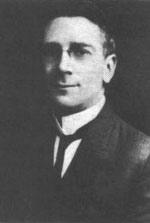
Alexander Maitland Stephen, was a Canadian author of poetry and fiction.
References
- Hamar Foster, "A Romance of the Lost: The Role of Tom MacInnes in the History of the British Columbia Indian Land Question," Essays in the History of Canadian Law, Vol. VIII. Ed. G. Baine Baker and Jim Phillips. Toronto: University of Toronto Press, 1999, 171–212.
- Peter Ward, White Canada Forever: Popular Attitudes and Public Policy Toward Orientals in British Columbia, 3rd ed. Montreal and Kingston: McGill-Queen's University Press, 2002.